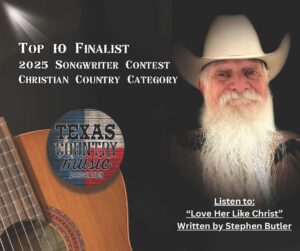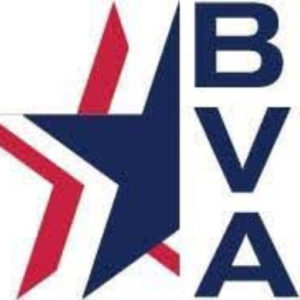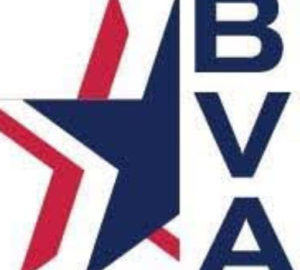 When Navy veteran and current BVA Judge Advocate Stephen Butler lost his vision, his world went dark in more ways than one. Then a diagnosis of advanced diabetes took away the feeling in his hands and feet, leaving him without spatial awareness, and without the tactile feedback needed to navigate the world or play the musical instruments he once loved.
When Navy veteran and current BVA Judge Advocate Stephen Butler lost his vision, his world went dark in more ways than one. Then a diagnosis of advanced diabetes took away the feeling in his hands and feet, leaving him without spatial awareness, and without the tactile feedback needed to navigate the world or play the musical instruments he once loved.
“I went from being a warrior, capable of completing any mission, to holding onto someone’s elbow just to avoid tripping over a curb,” Stephen recalls. “It was humiliating, and I didn’t see a way forward.”
For the first few years after losing his vision, Stephen isolated himself. Anger, frustration, and a deep sense of loss became his daily reality. As both a veteran and a musician, the inability to physically interact with the world—and especially his instruments—cut deeply. The man who once lived on purpose now felt like a burden, stripped of direction.
But everything changed when his VA Visual Impairment Services Team (VIST), alongside his loving family, gently but persistently encouraged him to enroll in a residential Blind Rehabilitation Center (BRC) program.
“Honestly, I didn’t want to go,” he admits. “But they didn’t give up on me, even when I had given up on myself.”
The decision to go marked the beginning of Stephen’s journey back to life.
Rediscovering Independence
Stephen’s first experience with blind rehabilitation was at the BRC in Waco, Texas. Like many, he started with basic but transformative skills: pouring a glass of water without spilling it, learning to walk independently with a white cane, and navigating new environments safely and confidently.
“Those might sound like small things,” Stephen says, “but to someone who’s lost their independence, they’re monumental.”
From Waco, he continued his training at the BRCs in Hines, Illinois; American Lake, Washington; and Biloxi, Mississippi—each center building on the last. The Blind Rehabilitation Service (BRS) teams taught him everything from adaptive daily living skills to advanced assistive technology. He learned how to use a screen reader, how to work with tactile cues, and eventually how to make music again using adapted instruments and technology.
Through the dedicated work of BRS instructors and the camaraderie of his fellow veterans, Stephen found not only a renewed sense of purpose but also a renewed sense of hope.
“The staff didn’t just teach me skills. They cared. They showed me I wasn’t alone.”
Returning to His First Love: Music
With the help of accessible tech and training, Stephen returned to songwriting and recording, proving that vision loss doesn’t mean the end of creativity. Using adaptive musical software and a keen ear, he began to write, record, and produce his own music. Then, in 2025, Stephen’s song “Love Her Like Christ” was named a Top 10 Finalist in the Texas Country Music Association’s (TCMA) Songwriter Contest in the Christian Country category. Out of 446 total submissions, Stephen was selected as the third runner-up—an incredible accomplishment for any artist, let alone one who once believed his musical journey was over.
“Ten years ago, I thought I’d never write again. I was wrong.”
Today, Stephen’s music is streamed worldwide. His story isn’t just about loss but about perseverance, renewal, and the power of community. He proudly serves his fellow blinded veterans as a longtime BVA member. In his role of National Judge Advocate he has served under three BVA National Presidents. He even took time out of his otherwise busy schedule earlier this year to compose and write the lyrics for “The BVA Boot Shuffle,” a western-style country piece played and used on the dance floor at the historic BVA 80th National Convention in Dallas, Texas.
The Power of the BRC
Stephen’s success is a shining example of what’s possible when veterans take full advantage of the services offered by the VA’s Blind Rehabilitation Centers. From teaching the basics like labeling clothing and managing medications, to complex skills like coding, adaptive computing, and music production, BRCs provide vital tools and confidence to veterans with vision loss.
More importantly, the BRCs restore a belief in what’s possible.
“The BRC didn’t just train me—it gave me back my life,” Stephen says. “Every blind veteran deserves that chance.”
A Message to His Fellow Veterans
To any veteran facing vision loss, Stephen offers this message: “You’re not alone. There’s a team ready to help you, and a brotherhood that still has your back. You can find joy again—you must simply take the first step.”
Whether it’s walking confidently with a cane, brewing coffee without a spill, or taking the stage as an award-winning songwriter, Stephen Butler’s journey shows what’s possible when courage meets community.
Listen to Stephen Butler’s top ten TCMA song “Love Her Like Christ.”


